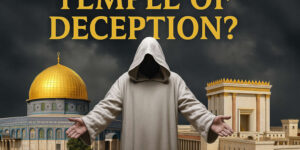Ted Cruz Is No Dominionist
To some outside the Republican Party—and even a few who are within it—Ted Cruz’s evangelical worldview is terrifying.
But two theologians are attempting to dispel the myth that the senator-turned-presidential candidate is a dominionist. In an article published last week titled “Stop Calling Ted Cruz a Dominionist” on Christianity Today, Pittsburgh Theological Seminary professors Robert Gagnon and Edith M. Humphrey say the senator’s faith influences his platform, but not in the ways most critics assume.
“Dominion Theology”—sometimes referred to as “Seven Mountains Theology”—is actually the 1980s creation of sociologist Sara Diamond, who considered it the “unifying ideology of the Christian Right.” It assumes that adherents are consumed with the goal of “dominating” seven areas of American society: government, the press, business, arts and entertainment, education, family and religion.
Those who follow these beliefs, Diamond suggested, were “dominionists.”
But Gagnon, a Presbyterian, and Humphrey, an Eastern Orthodox Christian, say the label doesn’t apply to Cruz:
As a teenager, he joined the Constitutional Corroborators, travelling throughout Texas reciting from memory the text of the Constitution up through the Bill of Rights. He was taught law at Princeton by Robert George, and at Harvard Law School by Alan Dershowitz. Dershowitz, who is Jewish, observed that he was “one of the brightest students we ever had.” Cruz, with his formidable knowledge of the Constitution, is a passionate proponent for a republican form of government with checks and balances, accessible to all.
Accordingly, he stands against those who would use the Constitution as a cipher for personal ideology. Liberal proponents of a “living Constitution” seek to amend the Constitution by the fiat of unelected liberal jurists, bypassing the constitutionally prescribed process of amendment. As Abraham Lincoln said, if American citizens accepted the Supreme Court’s Dred Scott decision, they would “have ceased to be their own rulers, having … practically resigned their government into the hands of that … tribunal.” Cruz’s view is consonant with two contemporary Catholic giants of jurisprudence: his professor, Robert George, and his mentor, the late Justice Antonin Scalia.
Rather, the theologians argue that Cruz is simply a constitutionalist, using quotes from the senator himself to back up their argument. They suggest that if his religious guidance had led him to progressive policies, liberals would have little objection to his candidacy—instead, their objections arise from his conservative views.
They then proceed to deconstruct the liberal/secular arguments against Cruz’s campaign, before returning to their conclusion:
Our point in all this is not to convince readers to vote for Ted Cruz, but to try to clarify the actual relationship of his faith to his politics. To be sure, he clearly wants Christian values to shape this country. But this does not make him a dominionist. It makes him a conservative constitutionalist who takes his Christian faith seriously—someone who believes that many Christian values could be beneficial for the whole body politic.






































